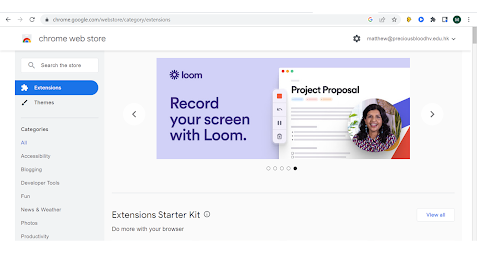#13 Why you should make a 'Top 5 Ed-tech tools' list
.png)
As I am currently in the process of weaning myself off using a computer and making my primary device an iPad, it has led me to consider the pros and cons of the various Ed-tech apps, tools, platforms and sites I use all the time in my work right now, whether that be on a PC, tablet or phone. As a Certified Google Trainer I obviously use Google apps a lot. However, there are also many good iPad apps to help any teacher, along with so many other apps developed by other companies and organizations. In fact, these days it can be a bit overwhelming to see the amount of Ed-tech products available for educators to use. For many educators, it can be much more than a bit overwhelming. So, I asked myself, now at the end of 2022, if I had to choose just 5 Ed-tech products to use, what would they be? Which ones are indispensable to me right now? CRITERIA Which ones are indispensable to me right now? In answering that question I made a bad decision as I first decided to just make ...
.png)
.png)
.png)
.png)
.png)